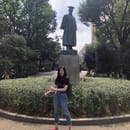“I Want to Die, But I Want to Eat Tteokbokki”
‘Huh?’ I thought as I reread the cover of the book. My eyes scanned the front for more details and spotted a short quote at the bottom.
“There are many people living without realizing they’re tired, suffering at the hands of meaningless emptiness.”
I stopped for a moment, mulling over the words. ‘Hmm, that sounds strangely familiar.’
These two points were more than enough to catch my attention, and soon I found myself at the cashier, paying for my copy of this Korean bestseller.
“I Want to Die, But I Want to Eat Tteokbokki” is an essay novel by Baek Se-hee that, as the eye-catching title suggests, covers the author’s personal experiences with depression and therapy. Unlike many books chronicling battles with depression, Baek’s debut work is particularly interesting in that it speaks frankly about mild depression and the hidden twists that come with it.
The media usually only spotlights severe depression, and it can make those who deal with milder cases wonder if their situations are valid, if they have the right to feel worried. “I Want to Die, But I Want to Eat Tteokbokki” pinpoints this issue and lets the latter group know that despite what society might say, your concerns have the right to be heard. Depression doesn’t always mean hours of suffering alone in the dark — as Baek reminds readers, depression can be subtle enough to remain unnoticed, but still influential and stress-inducing. Baek notes that many people go about their lives assuming that the extreme amount of pressure and anxiety they feel is normal, thus failing to look for a healthy solution and/or treatment (whether it be therapy, an outlet to release stress, etc.) I’ve only read a couple of chapters, but Baek’s candid approach to her situation has been oddly comforting and helped me realize that problems never have to be on the extreme end of a spectrum to be considered worthy of attention. You don’t have to be like someone out of a tragic melodrama, because your life is unique and what affects you a certain way doesn’t always have the same effect on someone else. Baek continuously emphasizes these ideas through transcripts of sessions with her psychiatrist, self-musings, and anecdotes. As one reviewer wrote, “As I was reading, I wanted to give the author a hug; now that I think about it, maybe I wanted to give myself a hug, too.”
Although there is no official English translation available, I highly recommend you give it a try if you can understand basic Korean. Some words might be a bit hard to understand without the help of a dictionary, but technical terms aside, Baek’s autobiography reads like a journal and is easy to go through despite the heaviness of the topic.
If you’re interested in taking a look for yourself, the book appears to be on sale here!


